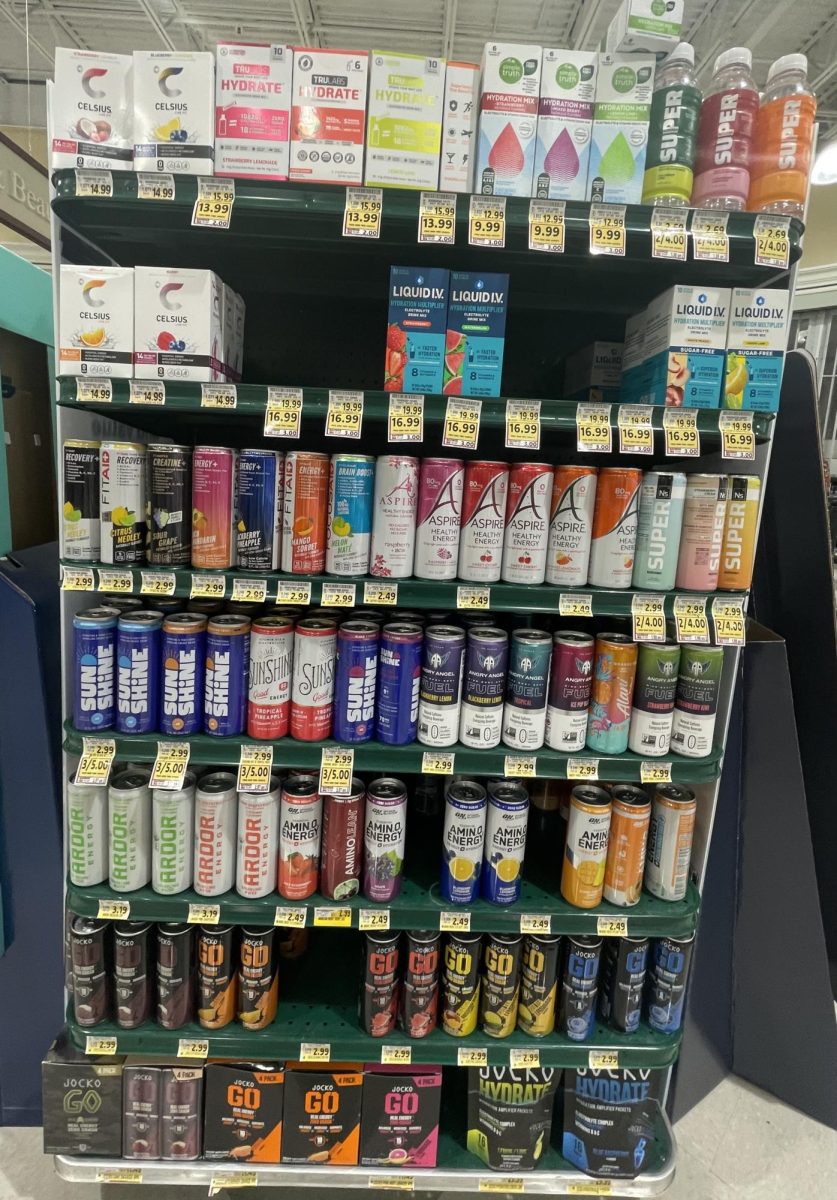You might see paper and a pencil sitting on top of most high schoolers desks, but you also might spot a Monster or Red Bull energy drink. Advertised in bright colored cans with natural ingredients such as taurine and B vitamin, these 16 oz caffeine boosters appear harmless at first glance.
On average, an energy drink such as Celsius contains 200 mg of caffeine. Though not regulated by the Food and Drug Administration, they suggest teenagers ages 12-17 should not exceed 100 mg a day of caffeine. When teenagers are drinking multiple of these a day, it raises the risk for serious health problems. So why do they drink them? Woodgrove sophomore Anjy Ary claimed, “I’ll drink them for energy in the mornings, but mostly for flavor…One energy drink can take me all day to finish, but I definitely get the effects throughout the whole day and don’t get a crash.”
For athletes, the consumption of energy drinks raises the risk for even more serious health problems. “Research shows that a little bit of caffeine can give you some enhancement of focus, but to me the last thing you want when you’re exercising and when your heart rate is already elevated is to elevate it even more. Studies actually show that it can have detrimental effects, not enhancing performance and play, so there’s definitely more adverse effects than potential benefits for athletes or anybody in general,” shares Woodgroves athletic trainer Paul Peterson. According to Nemours Teen Health, some adverse side effects are jitteriness and nervousness, headaches, trouble concentrating, and trouble sleeping. Paul Peterson shared the even more detrimental side effects. He stated, “There’s risk for cardiac arrest, cardiac arrhythmias, and atherosclerosis which increases your chance for a heart attack or stroke.”
Advertised for the younger crowd, energy drinks are extremely popular with teenagers. Prime energy drink, founded by online celebrities Logan Paul and KSI, was recently found to be under FDA investigation for its large amount of caffeine causing health issues for younger teens.
Woodgrove teacher Matthew Talboo, who regularly consumes energy drinks, shared, “It’s like anything. If you do too much, then it’s a problem. The kid that’s drinking three or four of them and gets 800 mg of caffeine a day is not healthy.” Talboo recommends students not consume more than the recommended amount of caffeine. “FDA says you should have at max 400 mg a day, so that’s all I consume,” Talboo stated.
For students, maintaining a healthy balanced diet, hydration, and quality sleep reduces the need for added caffeine. “Just stick with your gatorade, carbohydrates, and juices, but avoid those energy drinks at all costs,” Paul Peterson tells his athletes.



